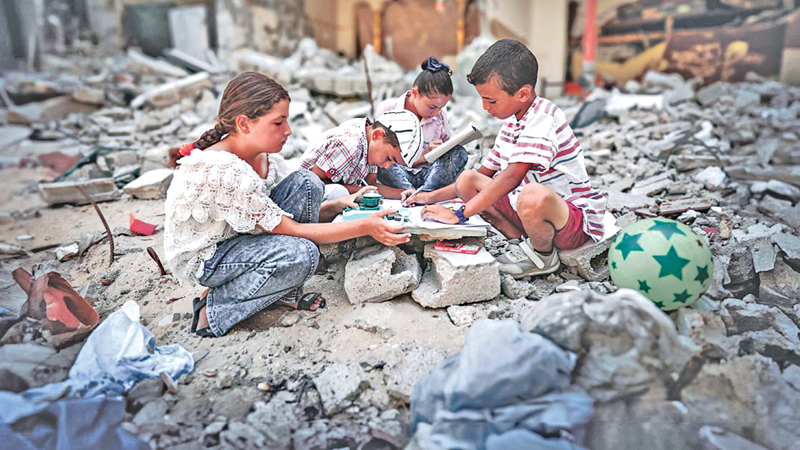One day the fighting in Gaza will end – how or when remains a matter of speculation, hope or despair. With the latest Steve Witkoff (US President Donald Trump’s Special Envoy to the Middle East) ceasefire formula in the balance and Israel’s “Operation Gideon’s Chariots” in full swing, an end to the conflict could be months or even years away.
Nevertheless, Gaza cannot remain a devastated battleground forever, even if – as Israeli Prime Minister Benjamin “Bibi” Netanyahu told the media on May 5 – the Israeli Defence Forces (IDF) holds on to conquered areas of the Gaza Strip until Hamas is well and truly cleared from them or – a possibility reported in the media three days later – the US leads a temporary post-war administration for a while.
A “day after” will undoubtedly arrive, and on that day, a fully-prepared plan for reconstruction will be needed, primed and ready to be put into effect. An early vision of a possible future for Gaza was announced to an astonished world by President Trump on February 4, 2025. He said that he intended the US to take over ownership of the Gaza Strip and convert it into the “Riviera of the Middle East”.
His proposal sent shockwaves through the region, but when he then said that the entire Gazan civilian population should be resettled in neighbouring countries such as Egypt and Jordan during the development process, he faced a torrent of dissent from the world at large, and the Arab world in particular.
Comprehensive reconstruction plan
To counter President Trump’s proposals, Egypt took the lead in formalising the ideas already in circulation for reconstructing, developing and administering post-war Gaza. An Arab Summit was hastily convened, and on March 4, the Egypt-led post-Gaza-war plan was unveiled. The comprehensive reconstruction plan was approved and adopted unanimously.
Since then, it has gained significant traction among international stakeholders including the United Nations (UN), the European Union (EU) and the African Union (AU). UN Secretary-General Antonio Guterres “strongly endorsed” the Egyptian plan, saying that the UN stood ready to cooperate fully in implementing it.
The Egyptian initiative addresses immediate humanitarian needs and the long-term governance and reconstruction of Gaza. It envisages a three-phase process: first, immediate humanitarian action, then a multi-year reconstruction effort and finally establishing a new governance structure for Gaza.
The first phase is planned to be completed in about six months; the rebuilding and governance reforms are estimated to last about a further four to five years.
The plan explicitly excludes Hamas from any involvement in the future governance of the enclave. It also bars the Palestinian Authority (PA) from direct administrative control, but it does envisage an umbrella-type council composed of Palestinian technocrats, operating under the auspices of the PA but supported by an International Governance Assistance Mission (IGAM). To maintain security during the transition, it proposes the establishment of an International Stabilisation Force (ISF) to be led by Arab States.
It is obvious that the cost of rebuilding Gaza’s towns and cities and their infrastructure will be astronomical. Egypt’s three-phase plan puts it at US$ 53 billion, to be expended over five years. For the first six months of humanitarian relief, the reconstruction program is projected to cost at US$ 3 billion. Phase two, which would involve rebuilding infrastructure such as roads and utilities, and constructing 200,000 permanent housing units, would cost some US$ 25 billion. The final phase, lasting two-and-a-half years and costing US$ 30 billion, aims to complete infrastructure, build another 200,000 housing units, and develop industrial zones, ports and an international airport.
Trust fund for reconstruction
To finance this US$ 53 billion plan, Egypt proposes establishing an internationally supervised trust fund to receive, channel and manage financial support from a wide range of international donors. The initiative envisages a broad coalition of donors including the UN, global financial institutions, the wealthier Gulf States such as Saudi Arabia and the United Arab Emirates (UAE), the EU and other international bodies.
Although it is widely supported, the US and Israel have reservations, such as the lack of explicit measures for the disarmament of Hamas, the involvement of the PA, and the potential engagement of the UNRWA.






